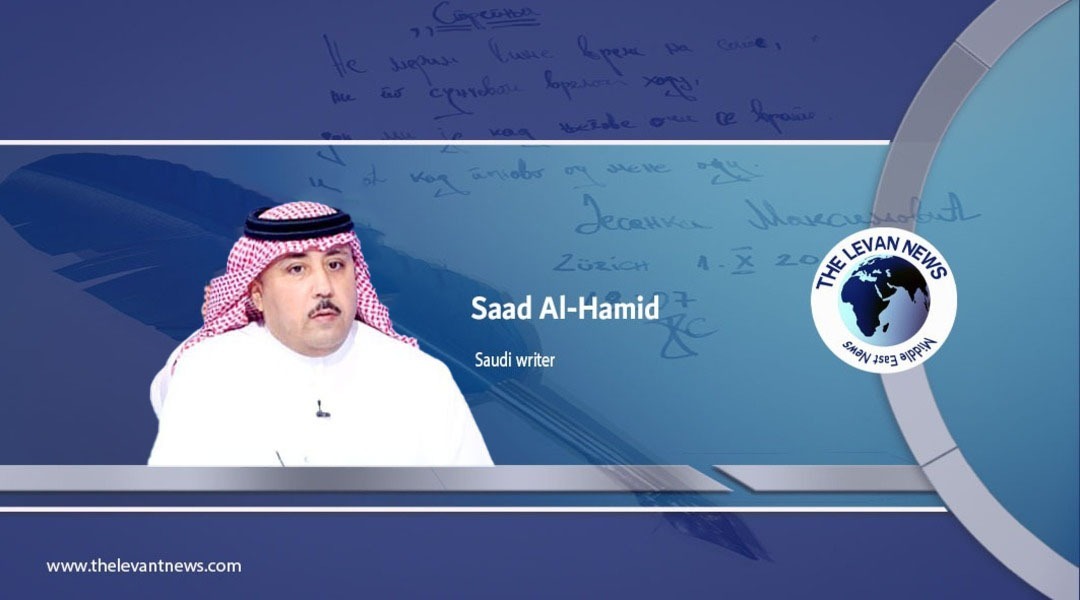-
Legitimate Libya, chaos and the voice of reason

Libya is once again witnessing political divisions after nearly a decade of chaos and returning to square one. Since 2014, many political forces, armed militias and Islamist groups have been fighting for power under two warring camps represented by two authorities competing over several gains including influence and wealth. Because of Parliament, Libya was divided in 2014 into two conflicting governments after Parliament rejected the decision of the Supreme Court and the highest constitutional authority.
The Libyan Parliament, which has the internationally recognised legislative authority, has legal eligibility to legislate any future conflict. Although it has been nearly a decade since the popular uprising against the regime of Muammar Gaddafi and the military intervention with the help of NATO to overthrow it, Libya did not witness any political stability, it rather became a battleground for armed militias competing for power there, the thing that required the intervention of regional and international powers, which turned the country into an arena of regional conflict and proxy wars. The intense raging competition between two rival parliaments, three governments, two central banks, two oil companies, and several armed groups is the dominant scene.
Those events led to an escalating political, economic and geographical division from time to time. The problem is there are three governments, one of which has UN legitimacy, which is the Government of National Accord headed by Fayez al-Sarraj, which is based on the support of militias in western cities and Islamist militias in eastern Libya and controls the eastern and some southern regions in the country, supported by the parliament based in the Libyan city of Tobruk and allied with Major General Khalifa Haftar, who returned by the Parliament and took the position of commander-in-chief of the army as he is supported by large sectors of the army, eastern tribes and scattered armed groups in the west and south of the country. On the other hand, we find that the government of Abdul Hamid Dbeibeh refuses to step down from power based on the outcomes of the Libyan dialogue which was supervised by the United Nations that gave an extendable time limit of a year and a half for the executive authority, although the House of Representatives and the majority of the State Consultative Council formed a new government headed by Fathi Bashagha who was a rival to Dbeibeh in the elections of the Political Dialogue Forum in February 2021, and also they both applied for the presidential elections that were scheduled to be held in late December, as Dbeibeh (supported by the Muslim Brotherhood in Libya and some southern tribes) refuses to cede power unless elections were held and a government was formed afterwards in Tripoli.
While Parliament insists on withdrawing confidence from him because his government failed in fighting corruption, unifying state institutions, especially the military and holding presidential elections on their scheduled date in the presence of two governments in the country; the first one has sworn in before the House of Representatives and the second one will hand over power only to an elected government. In the absence of an active Constitutional Court to adjudicate this dispute, Dbeibeh has nothing to do but object saying that the Parliament is taking unconstitutional steps, even though the Parliament is not faced by the State Council and the Presidential Council, and therefore things are all in Bashagha's interests.
What makes things complicated is that the three governments have arms, militants and foreign allies. All this happens and the international community is doing nothing to pressurise the parliament into installing the Dbeibeh government. Things now are dangerous in Libya, the crisis reached a dead end especially since a recent conflict (which might develop into a long one) sparked where light and heavy weapons were used amounts to war crimes through the indiscriminate bombing of populated neighbourhoods, which will impede the existence of real political initiatives that will make the parties meet at the negotiation table and make concessions that end this political stalemate which may make the civil war the solution.
As well, other factors may spark a war, such as the lack of current efforts to build the state & its institutions and the unstable social, political and economic conditions that pave the way for a civil conflict that will disrupt the process of completing the building of state institutions and the loss of Libya's capabilities for years to come especially since the international community is now facing its current global crises, such as the Russian-Ukrainian war and the US-Chinese conflict and the only thing it does for Libya is to call for peace, therefore, the Libyans have to be reasonable and wise to decide their fate.

By: Saad al-Hamid
You May Also Like
Popular Posts
Caricature
BENEFIT Sponsors BuildHer...
- April 23, 2025
BENEFIT, the Kingdom’s innovator and leading company in Fintech and electronic financial transactions service, has sponsored the BuildHer CityHack 2025 Hackathon, a two-day event spearheaded by the College of Engineering and Technology at the Royal University for Women (RUW).
Aimed at secondary school students, the event brought together a distinguished group of academic professionals and technology experts to mentor and inspire young participants.
More than 100 high school students from across the Kingdom of Bahrain took part in the hackathon, which featured an intensive programme of training workshops and hands-on sessions. These activities were tailored to enhance participants’ critical thinking, collaborative problem-solving, and team-building capabilities, while also encouraging the development of practical and sustainable solutions to contemporary challenges using modern technological tools.
BENEFIT’s Chief Executive Mr. Abdulwahed AlJanahi, commented: “Our support for this educational hackathon reflects our long-term strategic vision to nurture the talents of emerging national youth and empower the next generation of accomplished female leaders in technology. By fostering creativity and innovation, we aim to contribute meaningfully to Bahrain’s comprehensive development goals and align with the aspirations outlined in the Kingdom’s Vision 2030—an ambition in which BENEFIT plays a central role.”
Professor Riyadh Yousif Hamzah, President of the Royal University for Women, commented: “This initiative reflects our commitment to advancing women in STEM fields. We're cultivating a generation of creative, solution-driven female leaders who will drive national development. Our partnership with BENEFIT exemplifies the powerful synergy between academia and private sector in supporting educational innovation.”
Hanan Abdulla Hasan, Senior Manager, PR & Communication at BENEFIT, said: “We are honoured to collaborate with RUW in supporting this remarkable technology-focused event. It highlights our commitment to social responsibility, and our ongoing efforts to enhance the digital and innovation capabilities of young Bahraini women and foster their ability to harness technological tools in the service of a smarter, more sustainable future.”
For his part, Dr. Humam ElAgha, Acting Dean of the College of Engineering and Technology at the University, said: “BuildHer CityHack 2025 embodies our hands-on approach to education. By tackling real-world problems through creative thinking and sustainable solutions, we're preparing women to thrive in the knowledge economy – a cornerstone of the University's vision.”
opinion
Report
ads
Newsletter
Subscribe to our mailing list to get the new updates!






















